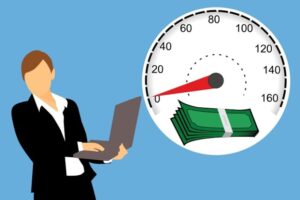You’ve tried your best to handle your debt load alone. Now, you realize you need help. That’s a great first step. You do have several options, so your task is to choose the right debt solution for you. Keep reading for help with your options.
Table of Contents
What is Debt Relief?
Let’s start here. The best debt relief programs ultimately aim to help rid you of debt. Types of debt relief include debt consolidation, credit counseling, debt settlement, and debt management.
Debt relief can entail loan refi, consolidation, principal reduction, term modification, or interest rate reduction, or even some combination.
You’ll need to choose your strategy based upon your debt type and overall financial situation.

Am I a Good Debt Relief Candidate?
You might be if you’ve mulled bankruptcy or have tried to manage your debt by yourself but aren’t really making progress. You also may want to consider debt relief if you can scarcely afford your monthly payments or are already delinquent.
Debt relief may not work for you, however, if your spending isn’t reined in or if you’re still adding to your balances, or if you aren’t interested in committing to a plan to erase your debt over three to five years.
Types of Debt Relief
Debt Consolidation
With this strategy, you’re combining all your debts, with their disparate due dates and payments, into just one fixed payment. This streamlines bill paying and can save you money if you have credit scores for a lower rate.
You can consolidate multiple ways, including through a personal loan, home equity loan, or balance transfer card.
Debt Settlement
Debt relief programs also include debt settlement, which calls for you to hire a company such as Freedom Debt Relief to see if your creditors will allow you to pay just a portion of what you owe in a one-time payment in full to “settle” your debt. While there are no guarantees, you have great odds since your creditors know you’re in trouble and that a bankruptcy filing – a probable recourse – may net them nothing.
Rather than pay creditors directly, you stash money each month in an escrow-type account your negotiators will ultimately use as leverage. The agency doesn’t get paid until settlements are reached.
It’s true that the process of debt relief will cause your credit scores to tumble, but once your debts are erased you can begin rebuilding your credit. Remember, too, that it’s been quite a while since you’ve had decent credit anyway.
Credit Counseling
This approach entails meeting with a certified credit counselor to review your financial situation. The certified counselor can help you set up a budget and establish a doable debt repayment plan.
Credit counseling also often offers education about basic personal finance that help keep you out of debt trouble once your debt load is erased.
Just be certain the agency is accredited with the National Foundation for Credit Counseling or the Financial Counseling Association of America.
Debt Management
If your situation calls for more than a new budget, your credit counselor will recommend enrollment in a debt management plan (DMP). With this approach, the counselor will help you determine how much you can comfortably pay monthly on your debt.
Your counselor will then serve as a kind of go-between: you’ll make monthly payments to the agency, which will disburse them to your creditors. A nominal fee will usually be added to your payment.
Note that you’ll be asked to close your current credit cards and to not open any new lines of credit.
Ultimately, choosing the right debt solution for you requires you to size up your situation against available options, then find a credible, established program. If you choose debt settlement, we can recommend Freedom Debt Relief.




